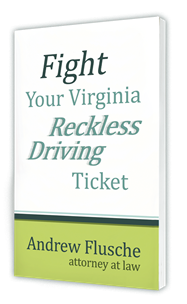What Is Grand Larceny in Virginia?
If you’ve been accused of theft in Virginia, you are likely feeling overwhelmed and not sure of what will happen next. We understand your fear, and we know that you need a way to take back some control over your life and future. Doing everything you can to secure your future should be your focus now, and that begins with contacting an experienced and dedicated law firm.
The lawyers of Flusche and Fitzgerald know how to defend you against such charges. The exact same charge can carry very different consequences depending on the value of the item involved. Grand larceny is the more serious form of theft and is classified as a felony under state law. It applies when specific thresholds are met, either based on the dollar amount stolen, the type of property involved, or the method of theft.
What Is Grand Larceny As Defined by Virginia Law?
Under Virginia Code § 18.2-95, you may face a grand larceny charge if the property allegedly stolen is worth $1,000 or more, if money or goods are taken directly from someone and worth at least $5, or if the item is a firearm, regardless of value. Compared to petit larceny, which is a misdemeanor, grand larceny brings more severe legal penalties and long-term consequences.
Whether this is your first offense or part of a broader case, knowing your rights can help you make informed decisions.
How Much Is Grand Larceny in VA?
The threshold for grand larceny in Virginia is $1,000. If the value of the stolen item is $999 or less, the prosecution typically charges the crime of petit larceny. The classification can change based on the value of the stolen items and the method of theft. For example, if you take $5 or more directly from someone’s body or clothing, the law treats it as grand larceny regardless of the overall value of what you took. Virginia lawmakers raised the threshold from $500 to $1,000 in 2020 to align with national trends and reduce the number of felony theft prosecutions for low-value items. Still, the consequences of a grand larceny charge remain serious.
Grand Larceny vs. Theft
In everyday language, theft refers broadly to taking something that doesn’t belong to you. Legally, Virginia breaks theft into specific categories, including petit larceny and grand larceny. The primary difference lies in the value of the item and the method of theft. Petit larceny is a misdemeanor for lower-value thefts, while grand larceny involves larger losses or more direct and serious forms of stealing. The key distinction is that grand larceny brings felony-level penalties and a far greater risk to your future.
Common Examples of Grand Larceny
While the law may seem straightforward, the facts of each case matter. These examples may help clarify when a charge qualifies as grand larceny:
- Taking merchandise worth $1,000 or more from a retail store;
- Stealing someone’s purse that contains $5 or more in cash or cards;
- Removing electronics, tools, or jewelry from someone’s home without consent; and
- Possessing a stolen firearm, regardless of its market value.
Even if you did not intend to commit a felony, the value or circumstances of the theft may lead prosecutors to charge you with a felony.
What Class of Felony Is Grand Larceny in Virginia?
Grand larceny is an unclassified felony with a statutory punishment range. The statute allows for a range of punishment from 1 to 20 years in prison. In some cases, especially if it is your first offense, the court may impose a lighter sentence and suspend part or all of the prison time. In many jurisdictions, prosecutors may offer a plea to reduce the charge if you have no prior record.
Collateral Consequences of a Grand Larceny Conviction
A felony theft conviction in Virginia can affect more than just your sentence. Even after completing your sentence, the record can create long-term barriers. Some of the most common collateral consequences include:
- Difficulty securing employment, especially in positions involving trust or handling money;
- Immigration consequences, including potential removal proceedings for non-citizens;
- Loss of civil rights, such as the right to vote or possess a firearm; and
- Trouble passing background checks for housing or professional licenses.
These outcomes make it crucial to either fight the charge or minimize its impact through a strategic legal approach.
Frequently Asked Questions
What Is the Average Sentence for a Grand Larceny in Virginia?
There is no standard sentence. However, many first-time offenders receive suspended sentences or probation, especially for non-violent thefts involving values close to the $1,000 minimum. Punishments do vary depending upon the facts and prior criminal history.
How Much Money Do You Have to Steal for It to Be a Felony in Virginia?
You must steal $1,000 or more in goods or money, $5 or more directly from a person, or any firearm regardless of value, for the charge to be classified as grand larceny.
What Is the Minimum Sentence for Grand Larceny?
The law allows for sentences up to 20 years in prison. Courts may suspend jail time or issue probation, and the law does allow the court to just impose a fine.
How Do You Beat a Grand Larceny Charge in VA?
To defend against the charge, your attorney may challenge the estimated value of the property, question the intent to steal, dispute identification, or examine how law enforcement obtained the evidence. In some cases, resolving the case through restitution or negotiation may result in reduced penalties.
Learn more about how to beat a grand larceny charge in VA by speaking with a defense attorney who knows local courts.
Facing a Grand Larceny Charge? Call a Virginia Defense Lawyer Today
A grand larceny charge in Virginia is not something you should try to handle on your own. Even grand larceny in Virginia as a first offense is serious, and a felony conviction can produce lasting damage to your record, finances, and future opportunities. At Flusche & Fitzgerald, we evaluate every detail, from the value of the property to how the police collected evidence. Our goal is to help you reduce or avoid the worst consequences. Call now to schedule a confidential consultation with a defense attorney who understands how local prosecutors handle theft cases. Due to our case load, we cannot accept all grand larceny cases, but we encourage your call. The sooner you act, the more options you may have.




